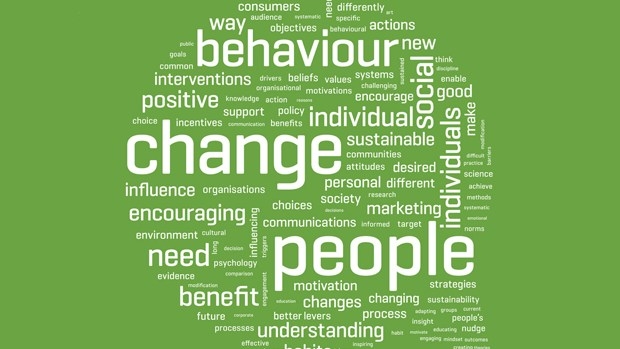Sustainability as a concept has become more and more important during the last couple of years. An increasing amount of people is becoming aware of the problems we create for both our and the future generation and almost everyone seems to have the same (ultimate) goal to save ourselves from killing our own planet. So, sustainability worldwide is a relevant subject of conversation, innovation and action.
Although the big change might be the ‘endgame’ it all has to start on a small scale. However, the process towards change and especially keeping this process ongoing is not easy. For example, how often have you tried to make your life more sustainable? For instance by separating your waste, trying to buy products with none (or less) packaging materials, bring your own bags to the supermarket or buy fair trade products, but in the end, after perhaps a couple of weeks, found yourself buying the cheapest products or using plastic bags offered by a shop again?
I think even if our minds have changed towards a sustainable way of living, our own behaviour, especially on the long-term, is the hardest to change. The question then is: How to continuously be sustainable? Both, from the information I’ve read in literature and from my own experience I could state that, after people are successfully stimulated towards sustainable change, it is in their nature to want to achieve the main goals right away. However, the chance the ‘ultimate’ goal will be achieved by conducting this method probably isn’t that high. The best way to accomplish isn’t trying to achieve your goals right away, which as stated before, will end up with us feeling not motivated anymore and will lead to giving up most of the times.
A better way to make progress in this transition of change is to keep your levels of change realistic: do it step by step. For instance, instead of attempting to achieve all the examples of changes from the second paragraph at ones, try one at the time. By making little changes at a time, after a while you’ll find yourself doing these particular actions effortless and automatically. This way, when something happens along the way or a specific action will not get into your system as easy as previous ones, you have something to fall back on and it won’t stop you from changing entirely. It is easier to adjust and it might motivate you even more to pull through and conquer this small (and overall) goal too.
Concluding; Sustainable change isn’t easy and therefore is not something that is achieved overnight, it is a transition process that truly takes root in an individual, organization or society. Even the best or most brilliant sustainable change initiatives are worthless when they are not implemented on the right, in my opinion initiatively small-scale, way. A way that will keep people motivated and involved until the desired impact or result on the long-term is achieved.
